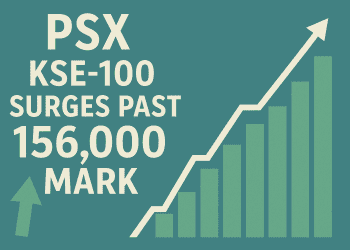London’s stock market saw minimal movement recently, as investors awaited critical inflation data from the US and Eurozone. The market’s muted reaction can be attributed to the anticipation and uncertainty surrounding these economic indicators in London stocks, which have significant implications for global financial markets.
What is the Importance of US and Euro Inflation Data?
Inflation data from the US and Eurozone are crucial because they influence central banks’ monetary policies. High inflation can lead to increased interest rates, which generally depress stock prices. Conversely, low inflation might lead to lower interest rates, stimulating economic growth and boosting stock prices.
How Did Major Indices Perform?
The FTSE 100 index, a benchmark for London stocks equities, showed little movement, closing marginally higher. Similarly, other major European indices like the DAX in Germany and the CAC 40 in France exhibited minimal changes. This tepid performance highlights the cautious stance investors are taking as they await inflation reports.
What Are Investors Expecting from the US Inflation Data?
Investors are keenly watching for signs of inflationary pressures in the US. The Federal Reserve has indicated that its monetary policy decisions will be data-dependent, with a particular focus on inflation metrics. A higher-than-expected inflation rate could prompt the Fed to raise interest rates sooner, impacting global markets.
What Impact Does Eurozone Inflation Have?
In the Eurozone, inflation data is equally significant. The European Central Bank (ECB) has been grappling with economic challenges, and any signs of rising inflation could lead to a tightening of monetary policy. This would affect borrowing costs and economic activity across Europe, influencing investor sentiment and stock prices.
How Do These Data Points Affect Currency Markets?
Inflation data also have a substantial impact on currency markets. For instance, if US inflation is higher than expected, the dollar might strengthen as investors anticipate rate hikes by the Federal Reserve. Conversely, if Eurozone inflation is high, the euro could gain strength, affecting global trade and investment flows.
What Sectors Were Most Affected?
In London, sectors like banking and consumer goods saw slight fluctuations. Banks are particularly sensitive to interest rate changes, as higher rates can increase their profit margins. Consumer goods companies, on the other hand, are affected by changes in consumer spending power, which is influenced by inflation and interest rates.
What Were the Reactions from Market Analysts?
Market analysts have been vocal about the potential impacts of the upcoming inflation data. Many predict that the data will likely show a mixed picture, with some sectors experiencing higher price pressures than others. This mixed outlook adds to the uncertainty, keeping investors cautious.
How Did Global Events Influence the Market?
Global events also played a role in the stock market’s performance. Ongoing geopolitical tensions and trade negotiations between major economies have added layers of uncertainty. Investors are closely monitoring these developments, as they can significantly impact global supply chains and economic stability.
What Are the Long-Term Implications for Investors?
The long-term implications for investors hinge on how central banks respond to the inflation data. A hawkish stance from the Federal Reserve or the ECB could lead to higher interest rates, affecting everything from mortgage rates to corporate borrowing costs. Investors need to be prepared for potential volatility in the markets as these scenarios unfold.
What Should Investors Watch Next?
Investors should keep an eye on subsequent economic reports, such as employment data and consumer spending figures. These reports will provide further insights into the health of the economy and the likely direction of monetary policy. Staying informed and agile will be key to navigating the potential market volatility ahead.
Why are London stocks showing little change?
London stocks are mostly unchanged as investors await crucial inflation data from the US and Eurozone, which could influence global financial markets.
What impact could US inflation data have on the market?
Higher-than-expected US inflation could prompt the Federal Reserve to raise interest rates sooner, impacting global markets and investor sentiment.
Why is Eurozone inflation data important?
Eurozone inflation data is significant because it influences the European Central Bank’s monetary policy, affecting borrowing costs and economic activity across Europe.
How do inflation data affect currency markets?
Inflation data impact currency markets by influencing central bank policies. Higher inflation can lead to stronger currencies if rate hikes are anticipated.
What sectors are most affected by inflation data?
Sectors like banking and consumer goods are particularly sensitive to inflation data, as they are directly affected by changes in interest rates and consumer spending power.







